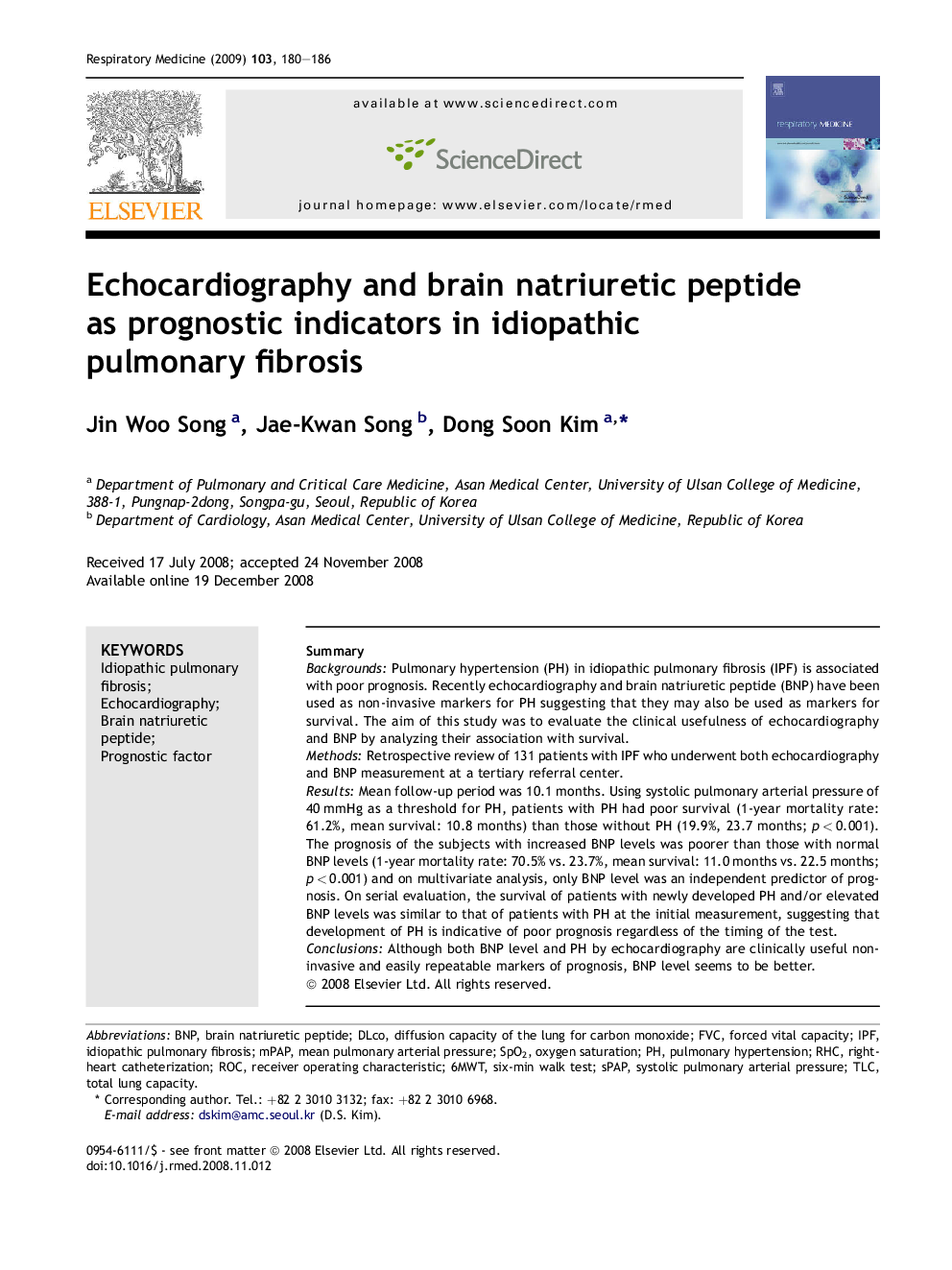| Article ID | Journal | Published Year | Pages | File Type |
|---|---|---|---|---|
| 4211260 | Respiratory Medicine | 2009 | 7 Pages |
SummaryBackgroundsPulmonary hypertension (PH) in idiopathic pulmonary fibrosis (IPF) is associated with poor prognosis. Recently echocardiography and brain natriuretic peptide (BNP) have been used as non-invasive markers for PH suggesting that they may also be used as markers for survival. The aim of this study was to evaluate the clinical usefulness of echocardiography and BNP by analyzing their association with survival.MethodsRetrospective review of 131 patients with IPF who underwent both echocardiography and BNP measurement at a tertiary referral center.ResultsMean follow-up period was 10.1 months. Using systolic pulmonary arterial pressure of 40 mmHg as a threshold for PH, patients with PH had poor survival (1-year mortality rate: 61.2%, mean survival: 10.8 months) than those without PH (19.9%, 23.7 months; p < 0.001). The prognosis of the subjects with increased BNP levels was poorer than those with normal BNP levels (1-year mortality rate: 70.5% vs. 23.7%, mean survival: 11.0 months vs. 22.5 months; p < 0.001) and on multivariate analysis, only BNP level was an independent predictor of prognosis. On serial evaluation, the survival of patients with newly developed PH and/or elevated BNP levels was similar to that of patients with PH at the initial measurement, suggesting that development of PH is indicative of poor prognosis regardless of the timing of the test.ConclusionsAlthough both BNP level and PH by echocardiography are clinically useful non-invasive and easily repeatable markers of prognosis, BNP level seems to be better.
